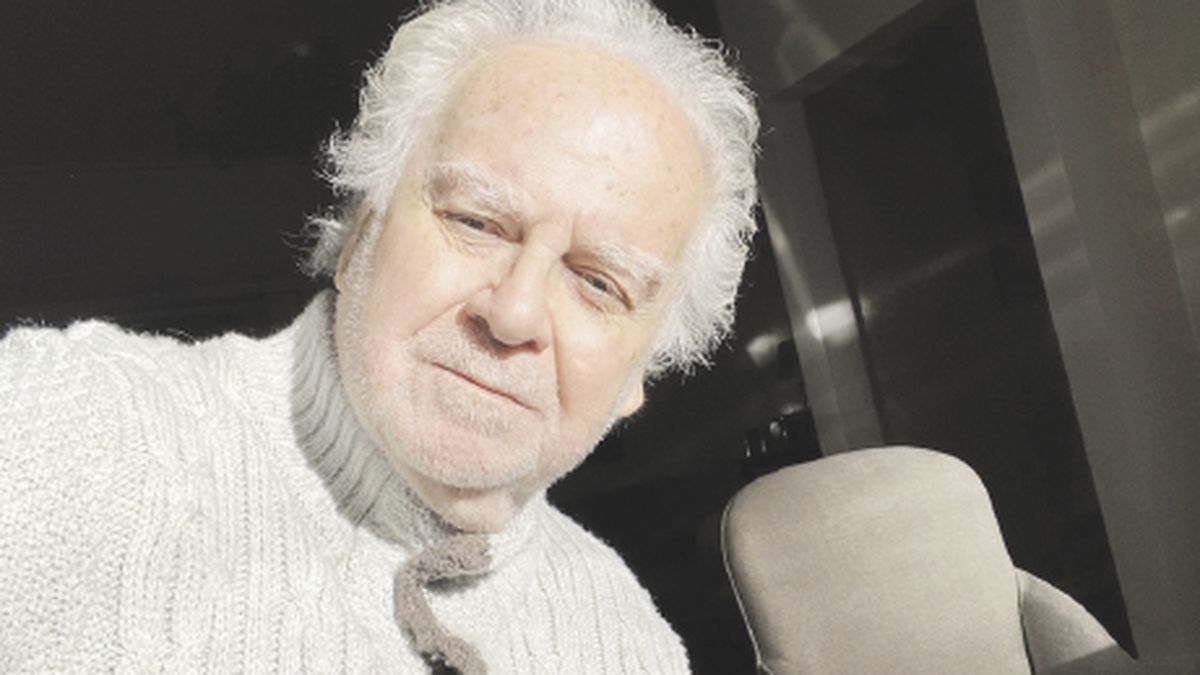“When I talk about my memories, cinema always appears, and in those memories they arise immediately Beatriz Guido and her husband, Leopoldo Torre Nilsson. She had an extroverted, communicative, happy character; “She had one of those personalities that helps a young person bond with someone when she moves toward something that interests her.” So remember Oscar Barney Finn to the notable writer whose centenary was remembered last year, and whose new circulation (through books, reissues, talks, tributes and future audiovisual projects) he led two years ago.
On Thursday the 23rd at 6:30 p.m., in the Fernandez Blanco Museum (Suipacha 1422), Barney Finn will present “The abodes”the book he dedicated to Beatriz Guido and that he has a particular profile, as he explained in his dialogue with this newspaper: “I did it almost without realizing it. I didn’t set out to sit down and write a book this way or that. It came out like that. I began to develop it and found that the houses, the dwellings that Beatriz inhabited throughout her life, marked her person. There are six seasons, six different houses, between the late 50s and early 80s, corresponding to very different moments in her life. She had also done so in the book I wrote about Luis Saslavsky.”
Initiative
Barney Finn, a year before the author’s centenary, held a meeting at his house where it all began: “Josefina Delgado, Cristina Mucci, José Miguel Onaindia, Cristina Piña, Héctor Olivera came. Many things came from there, and others are still missing. I also want to make known her playwriting, which is not very numerous, such as ‘El Puerto de Oriente’, ‘Waiting for the Castros’, a work that I rescued from her archives because she had no idea where it was, and the most well-known, ‘Homage to Siesta Time’, which Leopoldo filmed in 1962.”
“It also began to be republished after that meeting,” he continues. “Her executor, Adriana Martínez Vivot, gave consent and ‘The Fire and the Vespers’ was reissued; the stories, in the FCE, and Eudeba still needs to publish ‘Fin de fiesta’. On December 13, the day of the centenary, Rosario, her hometown, declared her an Illustrious Citizen of Culture, a plaque was placed on the Flag Monument, there were talks, round tables. And my fictional documentary about her life remained, for now, on standby.
Mucci reissued the biography ‘The Forgotten Ones’, which also includes Silvina Bullrich and Marta Lynch; Sabanés and Onaindia made ‘Privileged Spy’, an interesting book.”
Regarding the beginning of his relationship with Beatriz Guido remembers: “The initial element of seduction that Beatriz exerted on me was her first book, ‘The House of the Angel’, which I read in high school. It was the time when Denevi’s ‘Rosaura at Ten’ came out, books that became two successful films, made by Soffici and Torre Nilsson. “Those black and white images, those stories, impressed me a lot.”
“The personal contacts began later, when from the cinema club we decided to award, in a jury chaired by Tomás Eloy Martínez, another film from the duo, ‘The Kidnapper’. Torre Nilsson was the better director. I called her house to inform them, she answered me, she handed me over to Leopoldo, who was very happy, but he told me, well, if I am the best director, what is the best film? And there I had to tell him that it was ‘The boss’, from Ayala.” “Usually occurs”. we aim. “Alsina Thevenet ironically said that sometimes the best film is not made by the best director, like when ‘The Godfather’ won the Oscar for best film in 1973, but Bob Fosse won best director for ‘Cabaret’.” “Exactly,” she responds, “we were not the Academy but we did the same, we did not want to leave out the best, although later one knows, when one already makes films, that there is no distinction between director and film. But returning to my relationship with them: when I met them filming I discovered that she was the attentive one, her accomplice, the one who watched her back. Those were times of different communication with the directors, those of the 60’s generation, who filmed in the streets and got away from the studio, and everything became more accessible. “The Argentine nouvelle vague.”
“As it is. My friendship with Beatriz began to grow then, in parallel with my admiration for her literature. First it was ‘The House of the Angel’, then ‘The Kidnapper’, ‘The Fall’, ‘The Hand in the Trap’, ‘End of the Party’. I had access to the marriage, to their dialogues, to the sets. They were pleasant meetings, her house was open doors. They made you feel that what you told them was very important.
Regarding Beatriz Guido’s personality, he remembers: “always that joy, that wit and also that cruelty, at times, that is, the same as in her literature. The environment she came from explains a lot. She had been born in an unconventional, bohemian house, where there was a former actress who could not resign herself to having left the stage, her mother, Berta Eirin; and an architect, Ángel Guido, her father, who had a desire as a refined collector, with pieces from the 16th and 17th centuries. Beatriz was raised in a special environment, and she always protected her two sisters. She reflected all that in her books, those houses where she lived, which is why I chose them to base my book on; those characters, those complicated feelings, and that Leopoldo captured so well in his films. This also refers to what families were like in the past, the large number of cousins, uncles, parties; in my case in the Irish community, and the importance of family in each person’s history.”
Transformations
“An institution whose weight no longer exists as it did before, which has been dissolved.” “Of course,” he agrees. “That was broken. And we started doing it. I went to Europe to study film, I separated myself, I marked a break that only time allowed me to rework.
Barney Finn’s friendship with Beatriz Guido was about to become a film collaboration that, unfortunately, fell through. A film about the story “Chocolates Überalles”.
“Yes,” he points out. “A story that she published in ‘Clarín’. The problem was that, during Leopoldo’s life, no one could propose to adapt anything, because she gave everything to him. And he, after starting her ‘Martín Fierro’ stage, and ‘El Santo de la Espada’, with those huge teams of scriptwriters, left her a bit relegated. Torre Nilsson launched himself into big production, things changed. And it was difficult for her to publish again. It took her a long time to release ‘Scandals and Solitudes’. The ‘Chocolates Überalles’ project came after Leopoldo’s death. I remember that we started talking about it the day she went to see my film ‘Broken Comedy’, in the cinema hall. We signed a contract, she excited me to put together a great team. Julia von Grolman was going to be the protagonist. We worked for a decade, there was even an exchange agreement with Poland, because I was going to film there, in studios, and the Poles came to Argentina because they wanted to make a feature film with our natural settings. But, anyway, production obstacles, credit problems with INCAA due to that double agreement, in the end it was not done. However, something from ‘Chocolates’ will be in the fictional documentary, I have proposed that it be so.”
Source: Ambito
I am an author and journalist who has worked in the entertainment industry for over a decade. I currently work as a news editor at a major news website, and my focus is on covering the latest trends in entertainment. I also write occasional pieces for other outlets, and have authored two books about the entertainment industry.




